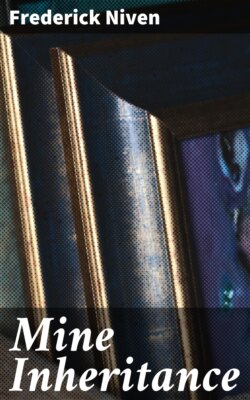Читать книгу Mine Inheritance - Frederick Niven - Страница 31
На сайте Литреса книга снята с продажи.
II
ОглавлениеTable of Contents
The response to that from the enemy fort of Gibraltar was the departure down river of a swift canoe. Its coming was reported to the Governor who went out to look at it. I was with him, and as he saw it flashing round the lower bend he must have recalled, as I did, that other one we had seen passing as swiftly down river after the ceremony of taking seizen.
The next canoes to reach Red River were crowded with men. At the command to come into the bank they promptly obeyed. But they were clearly not taken by surprise. By their deportment it might be hazarded that they were prepared to land there uninvited, and fight. A grim-faced man rose in the first one, leapt out and confronting Captain Macdonell inquired: “Were you signalling for us to come ashore, sir?”
“We were,” replied the Governor. “Macdonell is my name. Captain Miles Mac——”
“You’ll be the man they call the Governor,” said the new-comer. “My name is McDonald—capital M, small c, capital D, o-n-a-l-d: John McDonald of Garth.”
A powerfully built man was this McDonald of Garth but with one arm hanging loose at his side. It was the arm that gave the Governor a hint of his identity. He had heard of a McDonald with a broken arm who had been in the fur trade in the west from the days even of old feuds between the North-West Company and a rival one called the X.Y.
“Yes, I am the Governor,” replied Macdonell. “And you will be he whom they call Bras Croché?”
“Indeed I am so,” answered McDonald in a manner as of one pleased.
This Bras Croché, McDonald of Garth, was brother-in-law of William McGillivray, one of the “kings” as they used to say of the North-West Company.
“I am just on my way,” he said, “from the Pacific coast through New Caledonia and by the Athabasca Pass and our Prairie Fort, and down Saskatchewan, for Fort William and Montreal. At Bas de la Rivière” [foot of the Winnipic River] “I heard strange stories of affairs here and turned aside to see if I could be of any assistance.” He gave a low laugh. “A wee bit conference between us might be better than training these guns on the river and stopping the traffic.”
“There is one of our men held prisoner at present in Fort Gibraltar,” Miles Macdonell told him, “and I would be glad to have him released. It is high-handed to attack and hold people in that way. I am merely demonstrating that if I were so minded I could institute reprisal.”
“I am astonished at Duncan Cameron doing a thing like that,” admitted McDonald. “But I dare say we can come to terms. From what I heard at Bas de la Rivière I presume it is your pemican embargo that is at the root of the trouble.”
“Or the refusal to obey it, sir. As Governor of the territory of Assiniboia on behalf of the owner, Lord Selkirk, I am forced to establish it for a year.”
“I believe they are looking into all that—about the ownership of Assiniboia—at Montreal,” observed McDonald. “Well, I have no doubt I can speak Cameron fair for you and get that man released if you let us go on now. And maybe we might arrange for a discussion at an early date on the pemican and provisions question.”
“I shall be very happy to discuss the matter with you,” said our Governor.
McDonald, with the ease of one long accustomed to such river voyaging, slipped lightly, despite his bulk, into his canoe, saluted Miles Macdonell—who graciously saluted in return—and off went that small and far-voyaged fleet.
Macdonell of Scothouse looked after McDonald of Garth with interest.
“There is a man,” he remarked, “with whom affairs can be discussed.”
And by what followed it seemed he had rightly appraised him, for Howse was released and returned bearing a letter from Bras Croché requesting an appointment to discuss the pemican embargo.
